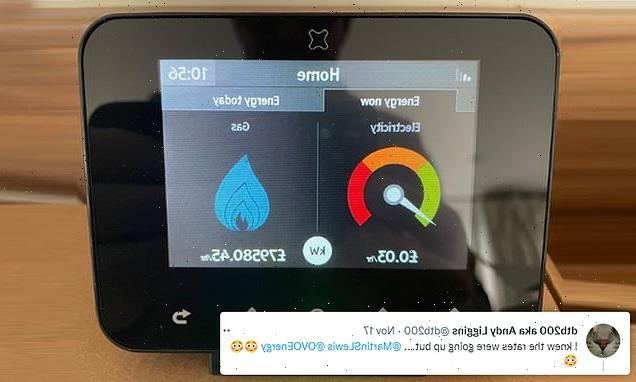LOTS of viruses rear their ugly heads during the winter months, including the common cold, flu and RSV.
But did you know the colder season can also increase your chances of having a fatal heart attack?
A German study, published in 2013 first found that more incidences of heart attacks occurred around the world as temperatures dropped.
This is because when the temperature falls your heart must work harder to keep you warm which increases your heart rate, charity Heart Research UK explained.
An increased heart rate ups your risk of a heart attack.
"While this is a natural process, it can be a cause for concern in those who are more vulnerable such as adults over 65, those with long-term health conditions, and those who are overweight and live less healthy lifestyles," the charity added.
Read more on heart attacks
The 7 heart attack signs that can strike exactly a month before deadly attack
Nearly 40% of women suffer surprising symptom in weeks before heart attack
This risk has also been made worse for many this winter as energy bills continue to soar, leaving some unable to heat their homes.
The charity has outlined some practical and cost-effective ways to protect your heart and stay warm this winter.
Staying warm indoors
To reduce the impact of the cold weather, try to keep your house heated to a minimum of 18°C, the charity explained.
Most read in Health
Thousands of Brits don’t know they have a silent killer – the 7 signs to know
I never dreamt I would meet King, says doc who won Sun Who Cares Wins award
Olivia Attwood looks incredible at The Sun's Who Cares Wins after I'm A Celeb
Celebs out in force for The Sun's Who Cares Wins as host Davina McCall stuns
"Use your thermostat to ensure the inside temperature doesn’t drop below this," they added.
"Make yourself regular hot meals and drinks, you could set an alarm for every hour to remind you to get up and make a cuppa.
"Warming, winter soups are a great idea in the winter, opt for these and warming stews for meals rather than something cold like a sandwich," they said.
They also suggested trying some at home exercises to warm your core body temperature.
The 9 signs you’re having a heart attack
Catching the condition quickly is essential to making sure you can recover better.
- chest pain – a sensation of pressure, heaviness, tightness or squeezing across the chest
- pain in other parts of the body – it can feel as if the pain is spreading from your chest to your arms (usually the left arm is affected, but it can affect both arms), jaw, neck, back and tummy (abdomen)
- feeling lightheaded or dizzy
- sweating
- shortness of breath
- feeling sick (nausea) or being sick (vomiting)
- an overwhelming sense of anxiety (similar to having a panic attack)
- coughing or wheezing
- Although the chest pain is often severe, some people may only experience minor pain, similar to indigestion. While the most common symptom of a heart attack in both men and women is chest pain, women are more likely to experience other symptoms such as shortness of breath, nausea/vomiting and back or jaw pain.
"Even using a a seated pedal exerciser to keep your legs moving, will help keep you warm while seated," the charity explained.
"You could buddy up with another household to reduce your heating bills, have a day at your house and then the next day go to theirs – you could even share the cooking!" they added.
Staying warm outdoors
On really cold days, it is better to stay indoors if you fall into the vulnerable categories.
But on milder winter days make sure you use layers to keep warm when outside and don’t forget your hat, gloves, and scarf.
"It is better to be overdressed and have to remove layers than find yourself cold when far from home," the charity explained.
"Plan respite stops when out and about, by nipping into a friend’s house for a hot drink or making use of low-cost offers from supermarkets and cafes for vulnerable age groups," it said.
Nourish your heart from the inside
Reduce your risk of heart disease by eating a healthy diet.
"During the winter months it can be tempting to reach for less healthy, comfort foods, but making sure we continue to eat well can protect our heart," they charity said.
Prioritise eating lots of fibre rich foods such as fruits, vegetables, oats and wholegrain foods like brown rice and pasta.
And choose lean meats and fish, including one portion of oily fish per week – such as salmon, mackerel, sardines and trout.
"Avoid consuming too much saturated fat by opting for low-fat dairy products and cooking with heart-healthy olive oil.
"Be mindful of how much alcohol you are consuming and look at stopping smoking if this is relevant, as both are risk factors for cardiovascular illness," they said.
Meanwhile, experts have urged Brits to be on the lookout for any potential warning signs of pneumonia this winter.
Read More on The Sun
Celebs out in force for The Sun’s Who Cares Wins as host Davina McCall stuns
Nearly 12million Brits to get up to £600 in cost of living payments from today
Data crunched by Asthma + Lung UK found that each year more than 25,000 people die from pneumonia in the UK – a death rate that surpasses all other European countries.
People are especially at risk to the virus during the winter months while there are higher rates of respiratory infections and people struggling to heat their homes.
Source: Read Full Article










